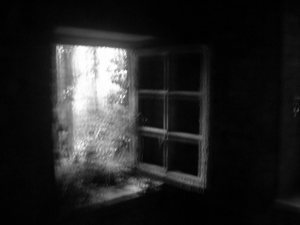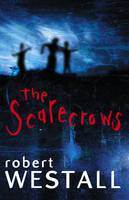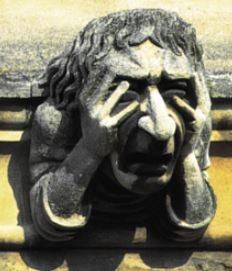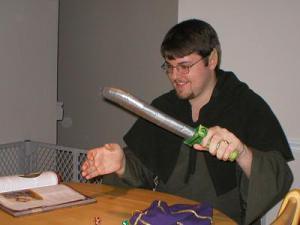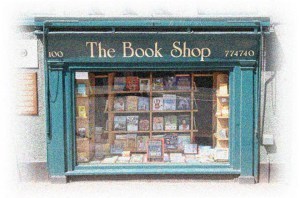Christopher Peter's Blog, page 9
June 2, 2014
My rabbit ate my shoelaces … and other excuses for not writing
Above: Simba, the Destroyer of Shoes. Don’t be foooled by that cute furry face …
If you are hoping to read one of those inspirational, inspiring blog posts about writing, then I apologise in advance, because this isn’t going to be one of them.
No doubt my zillions of (well, OK, 83) followers will have noticed that I haven’t posted anything for a few weeks. I’d really love to tell you that’s because I’ve been closeted away in my attic, labouring night and day at my latest epic novel and have triumphantly banked a word count that would render the most committed NaNoWriMo disciple speechless with envy.
But I haven’t been doing that either. The truth is, I did virtually no writing in May, beyond my last flash fiction piece. How inspiring is that? What happened?
Life, that’s what. And not all bad stuff. Yes, my rabbit did eat my shoelaces. This morning I went to put on my new work shoes and found the laces half chewed off. It’s my fault for putting them on top of Simba’s cage – the laces must have dangled through, and the aforementioned pet (whose dietary tastes are, shall we say, eclectic) duly helped himself.
But in all honesty, nothing much worse has happened to me than that. Just, you know, stuff. A lot of pretty good stuff too. I’ve been on holiday with my family. My eldest son’s had his tenth birthday. The day job’s has been going OK, and I’ve got two big work trips coming up in the space of three weeks. It was even warm enough here in the UK to dust off the barbeque and kids’ paddling pool a couple of weekends ago (and if you don’t know England in May, you don’t realise how semi-miraculous that is – you just have to make the most of it). In short, it’s all been a bit crazy and it all takes up time.
I did fiddle about a bit with one new book idea, but haven’t (so far) made much progress with it. And that’s one of my problems, as I think I’ve shared before. They say everyone has a book in them – well I’ve had at least two (the ones I’ve actually written so far) and there are lots more ideas teeming around it my head. It’s just that, at the moment, they’re not having much luck in escaping from my head on to paper (or rather, into Word). I’ve developed a worrying tendency to play with ideas for a while and then get bored with them.
Yes, I know writing is hard work and you’ve got to stick at it. As many more disciplined and inspirational bloggers will tell us, you have to make time. You have to prioritise. And truly, I am in violent agreement with them. From writing my novels I know first-hand just how many hours, how much sweat-and-tears (and possibly blood) it takes to wrestle them into fully-formed existence. It’s just that, recently, too many other things have got in the way – or I’ve allowed them to get in the way, perhaps.
But my family is important to me, so is church, my job pays the bills, and even Simba has his place in my schedule (even when – or especially when – he’s vandalising my footwear). I am passionate about writing – my novels were a labour of love for me (a lot of labour and much love) – but it just doesn’t necessarily always come top of the heap. It enriches my life but it doesn’t control it
So should I give myself a break or beat myself up? In the end, I draw comfort from the fact that I can do it – write, that is. Those two novels prove it. I know I’ve got what it takes, that I can summon up the motivation when I have to, and to produce something that I can be proud of and some others enjoy. More books will come out of me – just, perhaps, not quite yet.


May 11, 2014
Flash fiction: The House Hunter
In my last post I wrote of my long-time love of ghost stories; and of the fact that, although both my novels are of that genre, most of my short stories are not. So I thought I’d make my next one more supernaturally inclined – read or download The House Hunter here.


May 5, 2014
The book that most influenced me
It was the night before the Fund-raising Effort that the devils came. So it seemed to Simon Wood ever after …
Do you have a favourite novel of all time, or one that’s influenced you more than any other? You might think that’s an impossible questions to answer; if you’re anything like me then your response might be something like, ‘heck, where do I start, there’s so many?’
Yet in my case, there is one that stands out above all others. It’s called The Scarecrows by Robert Westall. I’ve posted a full review on Goodreads, which you can read if you’re interested. But here I’ll try to briefly explain why it was such a significant influence for me.
I first read The Scarecrows at the age of thirteen, which happened to be the same age as the main protagonist, Simon Wood. Its original attraction – the reason why I picked it off a bookshelf in the first place – was that it’s a ghost story, and I’ve always liked those. But there turned out to be much more to it than that. In fact it’s roughly one part ghost story, one part psychological thriller, and one part emotional drama.
Central to its power is the main character. Simon is utterly believable as the lonely, angry and confused boy who idolises his late father and sees his relationship with his mother begin to disintegrate after her remarriage to a man he hates. Simon is not always a nice person – in fact he’s sometimes pretty horrible – and so Westall did a brilliant job in making the reader root for such a dark and complex character.
What makes the story so gut-wrenchingly real is that it’s mainly Simon’s own inner demons that are tearing his family apart – and as his misery and isolation grows, so the unquiet ghosts in the ruined water-mill across the fields begin to stir, grow in power and move closer and closer … and yet, cleverly, you’re never completely sure to what extent the ghosts are ‘real’ versus how much Simon is imagining the whole thing. Nor is it at all obvious which is the most terrifying of the two prospects – you end up hoping the ghosts are really there, because the alternative – that Simon’s mind is sliding into madness – seems even worse.
Re-reading the book recently, I was able to appreciate afresh how well it’s written. The quality of Westall’s writing is superb throughout, clearly superior to most other writers (childrens’ and adults’) that I’ve seen since. It hooks you from the intriguing first sentence (at the start of this article) to the rather abrupt, slightly ambiguous ending. There’s the odd flash of humour too, despite the dark themes.
So, in conclusion, how exactly has this book influenced me? Well, aside from becoming a confirmed Westall fan, it’s no coincidence that when I finally got round to writing myself, my first two novels have been YA ghost stories, both with a background of domestic pain and upheaval, the characters contending with family strife as well as troublesome phantoms. Although I read a lot more than paranormal stuff now, and I don’t expect all my future writing to be necessarily quite so haunted (and in fact most of my short stories aren’t), my love of all things-going-bump-in-the-night was confirmed by The Scarecrows.


May 2, 2014
The art of walking nowhere: What helps you get creative?
People have different ways of relaxing and of getting their creative juices flowing. For me, nothing beats a walk. It doesn’t have to be a ten-mile hike – it can be a ten-minute stroll to the shops. The point is, if I spend too long hunched over a keyboard, my shoulders start to throb and my brain turns to soup; and that’s when I know I need to head outdoors.
Walking is the most beautifully simple form of exercise, good for mind and body, but too often it’s under-appreciated. It may not burn off the calories as quickly as sprinting or pumping weights, but it’s such a great way to relax and unwind. What’s more, you don’t need to be going anywhere in particular. Walks don’t have to serve such a mundane purpose.
I was delighted therefore to come across this article yesterday celebrating the art of walking nowhere, of a good aimless wander. It’s no surprise that writers are among its greatest proponents. Take this quote: ‘Charles Dickens was a walker. He could easily rack up 20 miles, often at night. You can almost smell London’s atmosphere in his prose.’ I can’t think of a greater recommendation that that.
Freeing your mind to wander over the sights and sounds, whether of serene countryside or busy city streets, combined with all that oxygen washing through your brain … no wonder creativity can get such a boost.
I’ve also always found walking a fantastic stress relief. I can remember as a moody, hormone-addled teenager, trying to get myself lost in the streets of Southend. (OK, Paris or London would sound better there, but when you’re from Essex you take what you can get.) When my novel BASIC Boy starts with the protagonist Cal walking aimlessly, trying to escape the pressures of his life just for a moment, there’s more than a little bit of me in there. The difference was in Cal’s case it led to adventure. It never really did for me – but when you leave your home and head off wherever, there’s always that possibility isn’t there?
Do you like to take a walk? Or do you have other ways to lower your stress levels and unleash your creativity?


April 29, 2014
So what’s with the gargoyle anyway?
I bet you’re wondering why I’ve adopted that gargoyle as my new avatar, and why this website is now described as my ‘online hiding place’. You aren’t? Well I’m telling you anyway, so there.
For one thing, after six months or so of blogging, I decided the site would benefit a bit of a makeover. Meanwhile it dawned on me that calling it CHRISTOPHER-PETER.COM in shouty capital letters made it sound a bit in-your-face corporate, which it isn’t. As for the demented-space-invader avatar, taken from the cover of BASIC Boy – well I still like that, but I fancied a change.
Then there’s the fact that I’m one of the majority of writers who sell very little. I once read that something like 95% of self-published authors sell fewer than 100 copies of each title, mostly to family and friends. (I’ve almost certainly got that stat slightly wrong but then, as we all know, 92.4% of statistics are made up on the spot.) It’s just so hard to get your writing noticed when there’s so much of it about.
The situation isn’t helped by the fact that, like many writers, I’m not too great at marketing. Jumping up and down shouting ‘Look at me! Look at me!’ isn’t a core strength. So I thought, well, why not embrace my inner introvert?
I live just outside Oxford, and that spired city is full of those little stone beasties, gargoyles; and when I found a picture of one who looked like he was hiding, I knew I’d found my new image. At least until I get bored with that one too.
So there you go. Now you know, whether you wanted to or not.


April 27, 2014
Does being a writer affect your enjoyment of reading?
It’s often said that it’s important for writers to keep reading stuff that other people write. This helps us to keep improving our own craft, and may also serve to keep us in touch with what’s current in the genres and markets that we ourselves write in. This should not be especially onerous for most writers, given that we’re generally a pretty bookish bunch anyway.
I agree totally with the above. However I’ve realised I have two problems that have affected how much I read, and my enjoyment of it. The first it the most obvious: time. What with writing swallowing up the hours, plus the day job and everything else, reading can easily become a causality of the highly inconvenient fact that there are only twenty-four hours in a day.
The second is perhaps less obvious, and something I’ve become more aware of recently. It’s basically this: as someone who’s been writing seriously for a few years, I’ve inevitably begun to read books as – well, a writer. That means I’m now much more keenly aware of how stories are structured, how plots develop, the words that are used, the point of view, and so on. All the stuff that we learn and think about and discuss as writers.
Of course to a great extent, that’s the point. When we read outstanding books, with brilliantly-drawn characters, involving storylines, cracking dialogue, economic and cliché-free prose … we learn valuable lessons. We hope this will rub off on us, that our own writing will progress as a result.
The problem is, we will probably also start to notice the not-so-great things elsewhere. Clichéd prose, over-use of adverbs, typos, unconvincing plot developments, padding – that will all also start to jump out at us.
The last novel I was reading, I had to stop because I decided the standard wasn’t high enough. I hope I don’t sound arrogant when I say I concluded that the author wasn’t any better than me, and in a couple of respects maybe not quite as good. It was actually a pretty reasonable book in many ways, professionally published, and was well-reviewed on Amazon. But there were some aspects of it, some deficiencies, that were starting to grate on me. And I concluded that, with time so precious, I need to focus on higher quality.
Last year I read another – again, conventionally published – that I did actually complete but wasn’t greatly impressed with. There were a couple of errors that shouldn’t have appeared in a professionally-edited book, and the author had one unhappy habit (i.e., over-using a variety of speech verbs) that I found increasingly off-putting. And this was a well-established and reasonably successful writer.
Of course, I can’t expect to love every single book I read, or to enjoy everything that others do. It’s a much too subjective business for that. But I’m now asking myself – has being a writer in some way reduced my ability to simply enjoy books? Do I over-analyse everything I read? Do I now see faults when previously I would have overlooked them?
The answer is – I’m not completely sure. I think it might be true up to a point. My standards may be higher than before – but they probably need to be. My reading diet needs to be good.
But, having said that, in the past I’ve given up on books too – but probably didn’t realise why a particular story wasn’t engaging me. Now I’m more likely to see why, the exact reasons I don’t like it, when before I’d have just said it’s boring or something like that.
And if a book is really good, especially well written, then I will still enjoy it. Then I know I’ve struck gold, and that as well as enjoying the experience it might also help to nudge forward my own writing. Such books are truly inspiring and one of the great pleasures of life.
What do you read? Do you look at books differently as your own writing has progressed? Do you sometimes give up on books, or do you always plough on to the end?


April 11, 2014
Dungeons & Dragons: Moral Panic, 1980s style
The more things change, the more they stay the same – or so it often seems. Back in the 1980s the Internet was a distant dream. So we didn’t have online porn, videos of jihadists beheading infidels, paedophile-haunted chat-rooms or unlimited 24-hour gambling. And although we had video games, blobby little men being chased around by unconvincingly blocky aliens was about as scary as they got.
But there was another threat to our youth, one that involved dice, optional miniature figurines and characters with names like Thong. (Well maybe that Thong – at least not in the version I played …) I was fascinated by this article which describes some of the controversy caused by the craze for fantasy role playing games in the pre-WWW era.
Reading the article now, it seems quaint, almost laughable that such a primitive (in more ways than one) pastime was a source of so much moral panic. By the time I got involved, in about 1983, the principal fear (as reflected in BASIC Boy) was of the mantle of geekhood increasingly being bestowed upon the brave goblin-fighting warriors by the rest of society. I wasn’t afraid of being branded a Devil worshipper so much as a spotty oik who couldn’t get a girlfriend (which I kind of was – a spotty oik that is, not a Devil worshipper – but never mind).
(Actually I wasn’t so much into D&D – I’ve always had an aversion to overly complicated games that last four days – but I did absolutely love the Fighting Fantasy solo role playing books.)
Anyway, this is one reason why I like history. It gives you a perspective on events that you can only get from a distance. I wonder what future generations will make of some of the issues and neuroses that obsess us today?
Changing the subject – I’m taking a break from blogging until after Easter. I’m going on holiday with my family and I’ve made the momentous decision not to take my laptop with me. Call it tech detox if you will. It also means I won’t do any writing as such for nine or ten days.
However I am taking the printed-out synopsis of my third novel, which I’ve done next to no work on for several months, and I’m going to ponder and scribble on it in an unashamedly pre-digital kind of way. The era of the word processor has been a massive boon to writers, and I just can’t imagine writing a novel on a typewriter or – even worse – by hand, though of course that’s what authors used to do and it didn’t stop some pretty good stuff being written! But sometimes I think there are drawbacks too. It encourages us to dive in and just write – which might be a good thing in many ways, but not perhaps always. And of course there are all those distractions – the Internet, e-mail, games, blah blah blah …
I’m hoping the space and focus of the next week will allow me to really think about my novel, to plan and ponder, read other stuff, and hopefully come back energised and ready to pound the keys and get the damn thing written.
Hope you have a wonderful Easter.


April 6, 2014
Flash fiction: One Month’s Notice
March 30, 2014
How much do you value bookshops?
Let me tell you a true story. In 2012 my family went with some friends on holiday to Scotland. One day we were visiting a very pleasant, bustling little coastal town, popular with tourists. Strolling down the street we came across a bookshop. It was an independent, not part of a chain. I’ve always loved bookshops and find it vaguely painful to pass one without going inside – so, with the luxury of time on our hands, we did.
It turned out to be one of those TARDIS-like establishments that didn’t look very big from the outside but opened up pleasingly once inside. It was a well-stocked, attractive-looking place, and it had a decent children’s book section. Our party included a total of five kids, ranging in age from four to ten, so this was good. I’d already spotted an interesting looking tome in the shop window, our kids love to browse, so we were all set for an enjoyable experience. And the bookshop was pretty much guaranteed some sales – which, according to this recent article, was an opportunity they couldn’t have afforded to pass up too often. Or so you might think …
Before I proceed with my story, I want to pick out two quotes from the article in question. It’s about the ongoing decline in the number of independent bookshops in the UK. Specifically that means traditional, physical outlets – what in the US are usually called bricks-and-mortar stores (a phrase I find unreasonably irritating, by the way – the geeky pedant in the back of my brain keeps shouting ‘but the shops in malls are made of concrete and glass, surely? Wouldn’t physical be a better, more accurate term? – and shorter too!’ – but that’s just me).
Anyway. Here are the two quotes:
“The book trade, the government and the general public need to realise that if we don’t take action now, the future of our bookshops – and therefore the health of the publishing industry and reading itself is at risk.”
“It’s great that there are so many ways now to consume literature but the independent bookshop is a crucial part of our culture and I would hate to see them disappear from our towns and cities.”
(Emphasis is mine in both cases.)
I wonder what you think of those statements. I suspect I’m far from alone in being broadly sympathetic, to the second one at least. I’ve already mentioned my affinity for bookshops. If my wife and I go shopping together, the ideal scenario is a clothes store and a bookshop in close proximity – then we’re both happy. I’ve also mentioned in a previous post how much I love the good, solid, unashamedly old-fashioned book made out of dead trees, and that I like to consume both paper and e-books simultaneously (well not absolutely simultaneously, but you know what I mean).
I do think bookshops are important, and I do try to buy actual books from actual, bricks-and-mortar physical stores on a reasonably regular basis, even when I know I could probably buy it cheaper from Amazon. But I also buy books from Amazon and I refuse to feel guilty about it.
Because I sometimes find physical bookshops to be – if I’m honest – slightly frustrating places. For the Amazon generation, accustomed to the ability to quickly find whatever you’re looking for from a vast available choice, scanning the frequently disordered and thinly-stocked shelves of the average bookshop does not strike me as being always the best use of valuable time. Unless you really are content to browse at leisure with no little or no preconceived idea of what you want to read next. Most independent bookshops are on the small side, but even the larger ones cannot realistically compete with the choice available online.
One of my favourite recent discoveries is Erin Kelly. Having read one of her novels, last year I went looking for another. This was actually her first novel, and it has been adapted for TV in the UK. I decided to try to buy it in a physical bookshop. Could I find it? Could I heck. Even the Oxford branch of Waterstones, a sizeable chain store, didn’t have more than one of her books.
Perhaps it’s unfair to criticise bookshops, especially small ones, for not having a particular book. But like I said, this was a good-selling, contemporary, mainstream title that’s recently been on TV. It’s not in the Fifty Shades of Grey League, but I would expect most general interest bookshops in the UK to stock it.
But then some bookshops don’t help their cause by wasting their precious floor space by opening cafes and selling toys instead of carrying more, well, books. Diversification seems to be the in thing, but I’m not convinced it’s necessarily a good idea. In one independent store I visited last year, I couldn’t see very many books at all for all the racks of greeting cards and novelty pencils; in fact if the sign outside hadn’t said ‘bookshop’ I might not have guessed what it was. If I want a cup of coffee, I’ll go to a café. If I want stationery, I’ll go to a stationery store. Some bigger stores might have room to spare to diversify, but I suspect most really don’t.
But I could have asked a bookshop to order that Erin Kelly book, couldn’t I? Yes, I could. And in the past I’ve sometimes done that. But, to be honest, why not then just order it myself online? Surely the whole point of physical bookshops is that you can see, browse and hold the books themselves?
But what about the human touch? Good old fashioned customer service? Ah yes. That brings me nicely back to my story.
In that bookshop in Scotland, my first inkling of trouble was when I was almost knocked over by a thunder-faced woman bustling down the aisle. She did not appear happy. She looked, in a word, stressed. Now I know what you’re thinking, and let me say I’m the first to admit that my kids are not always 100% perfectly angelic. But, honestly, we’d been inside that shop roughly three minutes and the kids had been OK. Seriously. They were not screaming, running, vomiting or hitting anyone. They were chattering enthusiastically. They were picking up books (not dropping, throwing or drawing on them). They were happy to be there, and my kids being excited by books is something I’m extremely keen to encourage. I would hope that bookshops might be too.
A few minutes later, as I was approaching the counter with a book in hand, I noticed that the above-mentioned stressed woman – who it seem was someone senior in the shop, perhaps the proprietor – was conversing with my ten-year-old daughter. Well, hissing more like. She (the proprietor) then turned to me, upon learning that I was the father of the errant child, and loudly informed me, in front of the whole shop, that my daughter had bent the cover of the book she’d taken off the shelf and had been carrying around the shop. (My daughter had done that because she wanted to show her friend, presumably because she liked it.)
I can’t sell that book now, complained the bookshop woman. (In fact, knowing my daughter, in all probability she was about to nag me to buy it for her.) She stared at me accusingly, as if I’d personally sanctioned the wholesale desecration of her shop and its contents. I felt about ten inches tall. I mumbled an apology. I returned the book I’d been carrying, the one I’d been about to buy, to the shelf. I then ignored my sons’ requests for other purchases and removed myself and my family from the shop as quickly as possible.
The results of all this were as follows. Ten-year-old girls in tears: one. Embarrassed and confused parents: two. Sales for bookshop: zero.
Now I admit this is not typical of my experience of customer service in bookshops. But ever since the Scotland Incident I’ve felt rather self-conscious when taking my kids into similar establishments. What if they make too much noise? What if (gasp) they slightly bend a cover?
It’s one reason why I don’t subscribe to a certain view of the books retail business. The one that has this spectrum of goodness with independent bookshops at one end, selfless bastions of culture, halos glowing atop their flowing, literature-loving locks; then from that moral high ground we proceed downhill through chain bookshops; then online retailers other than Amazon; and finally, at the extreme opposite end, at the very bottom, Jeff Bezos gnawing on a baby’s thigh bone.
Amazon are not perfect, and there are strong arguments that their dominance of the book market is not a wholly good thing. But the fear and loathing they inspire in some quarters is a thing to behold. As far as I can see they are a highly entrepreneurial organisation that is simply very good at what they do. Sometimes they make mistakes. No doubt they can be prone to exploit their dominance in a way that’s not to everyone’s taste or advantage. But every experience I’ve had of their customer service has been either good or outstanding. They offer an exceptional range at low prices. They have helped to drive the revolution of e-books. And they’ve never, ever made my daughter cry.
I’ll say it again: I like bookshops. I’d prefer to see them survive and prosper – the good ones at least. And I acknowledge that it’s a tough business, and I admire those who stick at it for the love of books. It’s easy for people like me to snipe from the sidelines. But the world has changed and is changing, and no particular business model has a divine right to survive. It therefore seems to me that instead of moaning about Amazon and spreading alarmist clap-trap about the death of publishing, culture or reading itself being dependent on their survival, independent bookshops and their defenders might want to adopt a more proactive, creative, customer-focussed mindset that doesn’t involve raging at Amazon, declaring themselves ‘Kindle-free zones’* or generally straining, Canute-like, to resist the tide of progress.
(* I have seen at least one bookshop in the UK proclaiming this on a sign in their window, and another with a similar message. The precise purpose of this escapes me, beyond attempting to make a proportion of its customers feel guilty.)
Now I’m quite sure that there are many excellent independent bookshops who are taking a more positive approach. No doubt it’s still not easy for them, but I wish them all the best.
My own opinion, for what it’s worth, is that in the future more independent bookshops will have to specialise. Trying to be generalist outlets, matching the range and price of the online giants, is a battle they can never hope to win. Subject specialism is one possible approach. Another is to jump on the localism bandwagon. If I had the money and time, I’d like to open up a bookshop showcasing Oxfordshire authors, including the self-published. My own books would be sold there, naturally; I mean, that would be one of the perks, right?
What do you think about physical bookshops? Do you think it’s vital they survive? Do you regularly buy from them? Do you think Amazon are the villains of the piece, the heroes or somewhere in between?


March 28, 2014
Falling Girl: A Ghost Story – part 7 of 7
Here it is … the final chapter of my novel Falling Girl: A Ghost Story: Falling Girl – part 7 . (Also includes some background information on castles.)
The previous six instalments can be found on the Falling Girl page.
I’d love to hear what you thought of this book, whether you’ve managed to read all of it or only part. As all writers know, constructive feedback (along with practice, practice, practice) is the best way to improve. So thank you in advance for any feedback you can give.
“This castle is haunted. It really is. There are ghosts in the walls and towers, the passages and the dark rooms, the secret places away from the warmth and sunshine, where it’s cold and clammy and … lonely.”
When eleven-year-old Ellie Black runs into Pentrillis Castle, she’s desperate to escape her depressing family life. Her parents have split up, Dad is Mr Angry, and her new step-brother is obnoxious beyond belief.
At first, it’s much better inside the castle. The sun shines (even when it’s still raining outside), there’s fabulous chocolate cake, and she meets a friendly story-teller and two cool new friends. (There’s also a scary bit in the chapel, but she was probably just imagining things, right?)
But the story-teller has a dark and unsettling tale to tell, of tragedy … and something menacing in the shadows.
And there’s some very odd things about those new friends.
And where did that awful scream come from?
But the worst part is when Ellie realises that there’s nowhere to hide from the ghost of Pentrillis Castle …




